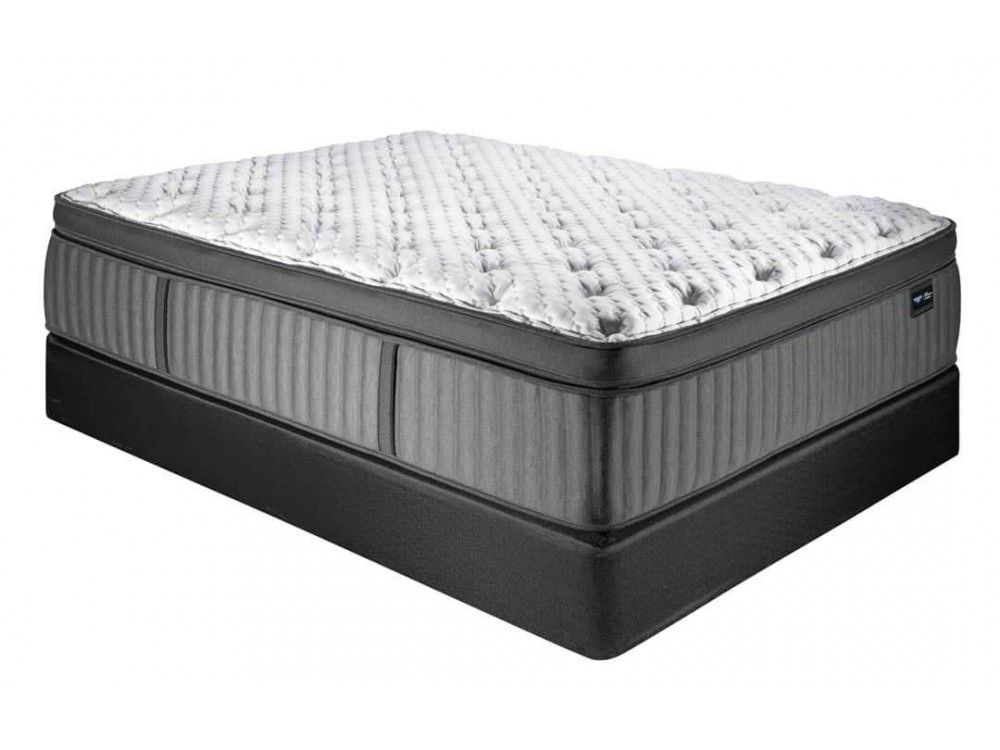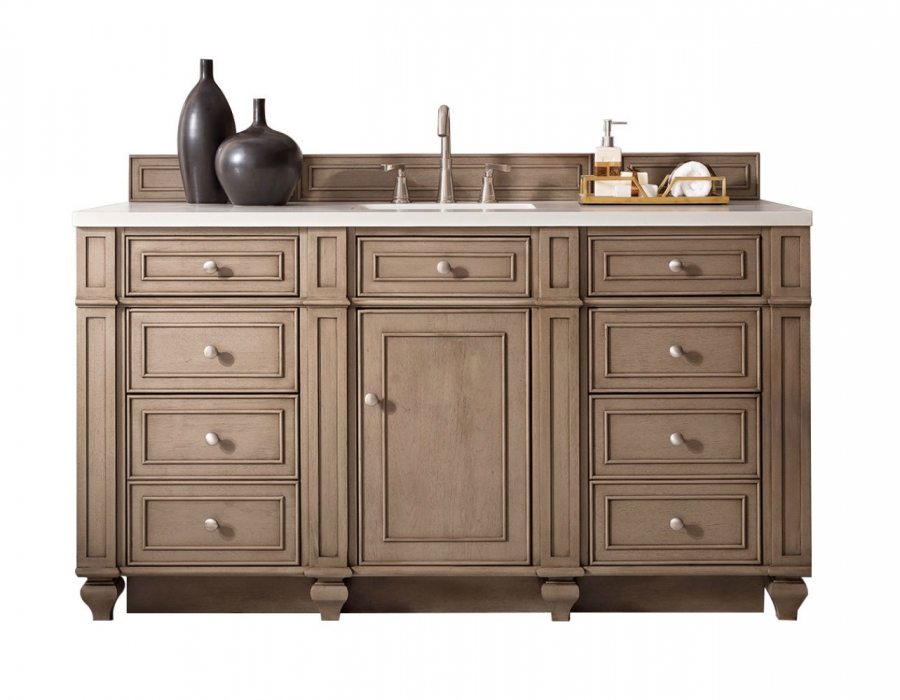If your kitchen sink has a foul odor that just won’t go away, you’re not alone. Kitchen sink odors are a common problem that many homeowners face, but fortunately, there are several solutions that can help eliminate them for good. First, start by identifying the cause of the smell. Is it coming from the drain, the garbage disposal, or somewhere else? Once you pinpoint the source, you can take the necessary steps to get rid of the smell and prevent it from coming back. One effective method is to pour a solution of hot water, baking soda, and white vinegar down the drain. This will help break down any buildup and neutralize any unpleasant odors. You can also try using a commercial drain cleaner or a mixture of lemon juice and salt to help eliminate the smell. Regularly cleaning and deodorizing your kitchen sink can also help prevent odors from developing. Wipe down the sink and faucet with a mixture of dish soap and water, and scrub the drain and garbage disposal with a brush or toothbrush to remove any food particles or grime that may be causing the smell.1. How to Get Rid of a Stinky Kitchen Sink
If you’re dealing with a persistent kitchen sink smell, there are a few tips that can help you get rid of it: 1. Keep your sink clean: Regularly cleaning your sink and drain can help prevent the buildup of food particles and bacteria that can cause odors. 2. Use a garbage disposal correctly: Make sure to run your garbage disposal regularly and avoid putting large or hard-to-break-down items down the drain, as they can cause clogs and odors. 3. Flush your drain with hot water: Running hot water down your drain after each use can help prevent buildup and keep your sink smelling fresh. 4. Avoid pouring grease down the drain: Grease can harden and cause clogs and odors in your drain, so it’s best to dispose of it in a separate container. 5. Use natural deodorizers: Lemon peels, baking soda, and white vinegar are all natural deodorizers that can help eliminate odors from your kitchen sink.2. Tips for Eliminating Kitchen Sink Odors
Understanding the common causes of a smelly kitchen sink can help you prevent and eliminate odors more effectively: 1. Food particles and debris: When food particles and debris get trapped in your drain or garbage disposal, they can start to decay and cause a foul odor. 2. Grease and oil: Grease and oil can harden in your drain and cause clogs and odors. 3. Bacteria and mold: Bacteria and mold can grow in your sink and drain, especially if there is standing water or moisture present. 4. Faulty plumbing: Sometimes, a smelly kitchen sink can be a sign of a more serious plumbing issue, such as a broken pipe or a sewer line problem. 5. Old garbage disposal: If your garbage disposal is old and not functioning properly, it can lead to unpleasant odors in your sink.3. Common Causes of a Smelly Kitchen Sink
If you prefer to use natural methods to eliminate odors from your kitchen sink, here are a few remedies that you can try: 1. Baking soda and vinegar: As mentioned before, a mixture of baking soda and vinegar can help break down buildup and neutralize odors in your sink. 2. Lemon juice and salt: The acid in lemon juice and the abrasive texture of salt can help scrub away grime and eliminate odors from your sink. 3. Boiling water and citrus peels: Boiling water can help break down any grease or food particles in your drain, and the citrus peels can add a fresh scent to your sink. 4. Essential oils: Adding a few drops of essential oils, such as lemon or peppermint, to your sink can help mask any unpleasant odors.4. Natural Remedies for a Stinky Kitchen Sink
If you’re feeling crafty, here are a few DIY solutions that you can make at home to help eliminate odors from your kitchen sink: 1. Citrus vinegar cleaner: Combine white vinegar and citrus peels in a jar and let it sit for a few weeks. Then, strain the mixture and use it to clean and deodorize your sink and drain. 2. Garbage disposal bombs: Mix baking soda, salt, and dish soap to form a paste, then roll it into small balls and freeze. Whenever your garbage disposal starts to smell, pop one of these bombs in and run it with hot water. 3. Drain deodorizer tabs: Combine baking soda, citric acid, and essential oils, then press the mixture into an ice cube tray and let it dry. Use these tabs to freshen up your drain and garbage disposal.5. DIY Solutions for a Smelly Kitchen Sink
Regularly cleaning and deodorizing your kitchen sink is key to preventing odors. Here’s a step-by-step guide on how to do it: 1. Gather your supplies: You’ll need dish soap, a sponge or cloth, baking soda, white vinegar, and a toothbrush or small cleaning brush. 2. Wipe down the sink and faucet: Use a mixture of dish soap and water to clean the surface of your sink and faucet. 3. Scrub the drain and garbage disposal: Use a toothbrush or small cleaning brush to scrub the drain and garbage disposal with a mixture of baking soda and water. 4. Pour a solution of hot water and vinegar down the drain: This will help break down any buildup and neutralize odors. 5. Rinse with hot water: Run hot water down the drain for a few minutes to flush away any remaining debris. 6. Dry the sink: Use a clean cloth to dry the sink and faucet and prevent any water spots from forming.6. How to Clean and Deodorize Your Kitchen Sink
If you’ve tried all the solutions mentioned above and your kitchen sink still has a foul odor, it may be time to troubleshoot the problem further. Here are a few things you can try: 1. Check for clogs: A clog in your drain can cause odors to linger. Use a plunger or a drain snake to try and clear any clogs. 2. Clean your garbage disposal: If your garbage disposal is the culprit, try cleaning it with ice cubes, salt, and lemon peels to help dislodge any trapped food particles. 3. Check your plumbing: If you suspect that there may be an issue with your plumbing, it’s best to call a professional plumber to take a look.7. Troubleshooting a Stinky Kitchen Sink
The best way to deal with a smelly kitchen sink is to prevent odors from developing in the first place. Here are a few tips to help you keep your sink smelling fresh: 1. Run hot water down the drain regularly: This will help prevent buildup and keep your drain clean. 2. Use a garbage disposal correctly: Avoid putting large or hard-to-break-down items down the drain, and run your garbage disposal regularly to prevent food particles from building up. 3. Don’t pour grease down the drain: Dispose of grease in a separate container instead. 4. Keep your sink clean: Regularly cleaning and sanitizing your sink and drain can help prevent odors and keep your kitchen smelling fresh.8. Preventing Kitchen Sink Odors
If you’ve tried all the DIY methods and are still struggling with a smelly kitchen sink, it may be time to call in a professional. A plumber can help identify and fix any underlying issues, such as a broken pipe or a damaged garbage disposal. They can also provide regular maintenance to keep your sink smelling fresh. Pro tip: If you have a septic tank, it’s important to have it regularly pumped and inspected to prevent any odors from backing up into your kitchen sink.9. Professional Solutions for a Stinky Kitchen Sink
Finally, here are a few common mistakes that homeowners make that can contribute to a smelly kitchen sink: 1. Not cleaning the sink and drain regularly: Regular cleaning and maintenance can prevent buildup and odors from developing. 2. Using harsh chemicals to clean the sink: Harsh chemicals can damage your pipes and cause more harm than good. Stick to natural cleaners or mild dish soap and water. 3. Not running the garbage disposal enough: Running your garbage disposal regularly can help prevent food particles from building up and causing odors. 4. Not properly disposing of grease and oil: Grease and oil can harden in your drain and cause clogs and odors, so it’s important to dispose of them properly. By avoiding these mistakes and following the tips and solutions mentioned in this article, you can say goodbye to a stinky kitchen sink and hello to a fresh and clean one. Remember to regularly clean and maintain your sink to prevent odors from developing, and don’t hesitate to call a professional if you’re dealing with a persistent odor that just won’t go away.10. Common Mistakes That Cause Kitchen Sink Odors
Eliminate Kitchen Sink Odor: Tips and Tricks for a Fresh and Clean Kitchen

The Culprit: Why Does Your Kitchen Sink Stink?
 One of the most common and unpleasant problems in a kitchen is a stinky sink. The lingering odor can be caused by a variety of factors, from food debris and buildup in the drain to bacterial growth in the garbage disposal. Not only is it unpleasant to have a stinky sink, but it can also be a potential health hazard. The good news is, there are simple and effective ways to eliminate the odor and keep your kitchen smelling fresh and clean.
One of the most common and unpleasant problems in a kitchen is a stinky sink. The lingering odor can be caused by a variety of factors, from food debris and buildup in the drain to bacterial growth in the garbage disposal. Not only is it unpleasant to have a stinky sink, but it can also be a potential health hazard. The good news is, there are simple and effective ways to eliminate the odor and keep your kitchen smelling fresh and clean.
The Solution: How to Get Rid of Kitchen Sink Odor
 The first step in getting rid of kitchen sink odor is to identify the source. If the smell is coming from the drain, it could be due to trapped food particles or a clogged pipe. In this case, a quick and easy solution is to pour boiling water down the drain to clear out any buildup. You can also use a mixture of
baking soda and vinegar
to break down any grease and grime that may be causing the odor.
If the smell is coming from the garbage disposal, it may be due to food scraps that have become stuck and are starting to rot. To tackle this issue, run some
citrus peels
through the disposal to freshen it up. You can also sprinkle some
baking soda
into the disposal and let it sit for a few minutes before rinsing it out with hot water.
The first step in getting rid of kitchen sink odor is to identify the source. If the smell is coming from the drain, it could be due to trapped food particles or a clogged pipe. In this case, a quick and easy solution is to pour boiling water down the drain to clear out any buildup. You can also use a mixture of
baking soda and vinegar
to break down any grease and grime that may be causing the odor.
If the smell is coming from the garbage disposal, it may be due to food scraps that have become stuck and are starting to rot. To tackle this issue, run some
citrus peels
through the disposal to freshen it up. You can also sprinkle some
baking soda
into the disposal and let it sit for a few minutes before rinsing it out with hot water.
Prevention: How to Keep Your Kitchen Sink Smelling Fresh
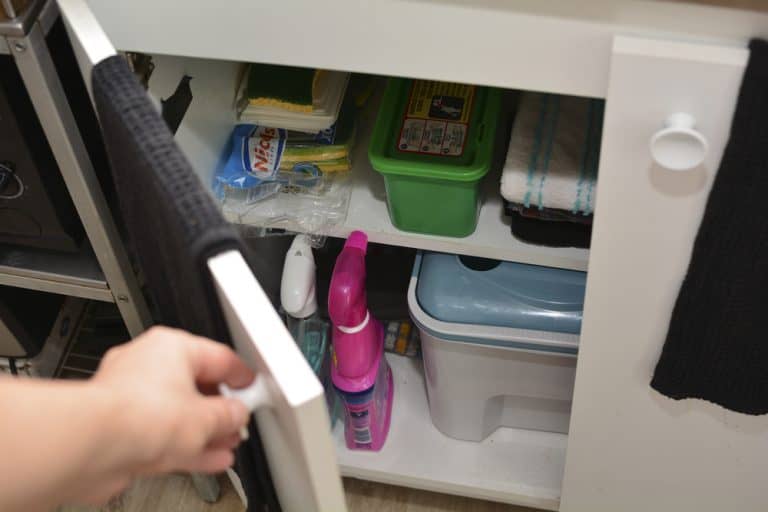 Once you have eliminated the source of the odor, it's important to take preventive measures to keep it from coming back. One way to do this is by regularly cleaning your sink and drain with a mixture of
vinegar and hot water
. This will help to break down any buildup and prevent bacteria from growing.
It's also important to properly dispose of food scraps and avoid putting large amounts of food down the drain. Instead, use a
garbage disposal cleaner
once a week to keep it clean and fresh.
Once you have eliminated the source of the odor, it's important to take preventive measures to keep it from coming back. One way to do this is by regularly cleaning your sink and drain with a mixture of
vinegar and hot water
. This will help to break down any buildup and prevent bacteria from growing.
It's also important to properly dispose of food scraps and avoid putting large amounts of food down the drain. Instead, use a
garbage disposal cleaner
once a week to keep it clean and fresh.
Final Thoughts
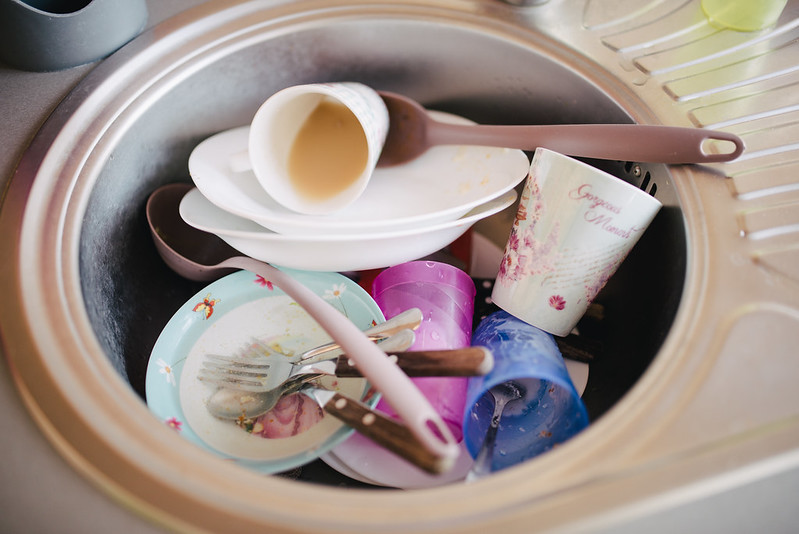 A stinky kitchen sink is not only unpleasant, but it can also be a sign of poor hygiene and potential health hazards. By following these simple tips and tricks, you can easily eliminate kitchen sink odor and keep your kitchen smelling fresh and clean. Remember to regularly clean and maintain your sink and disposal to prevent any future odor problems. With these easy solutions, you can say goodbye to a stinky kitchen sink for good!
A stinky kitchen sink is not only unpleasant, but it can also be a sign of poor hygiene and potential health hazards. By following these simple tips and tricks, you can easily eliminate kitchen sink odor and keep your kitchen smelling fresh and clean. Remember to regularly clean and maintain your sink and disposal to prevent any future odor problems. With these easy solutions, you can say goodbye to a stinky kitchen sink for good!




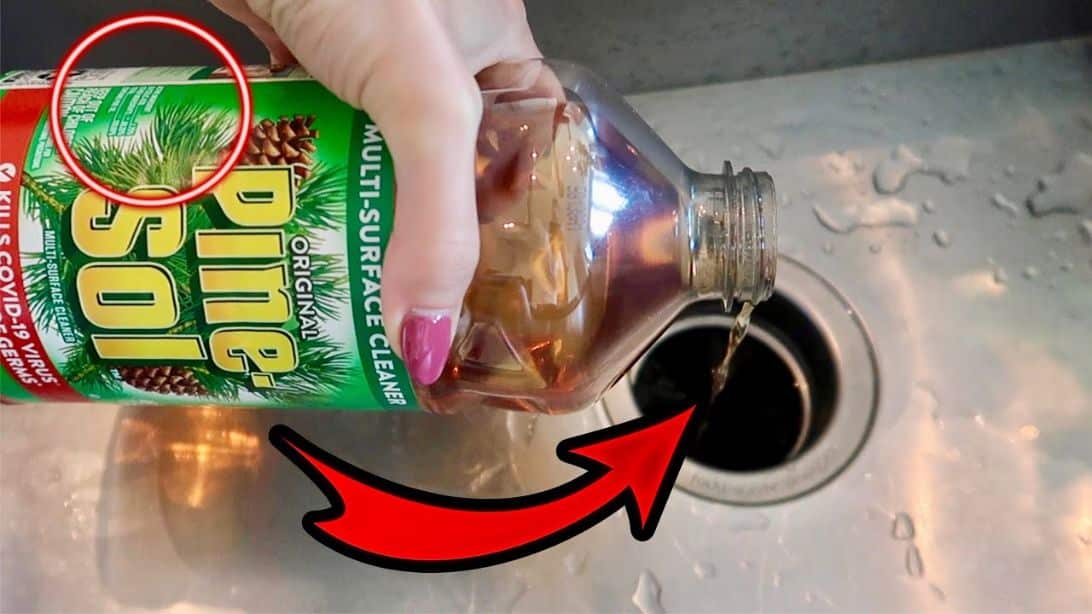






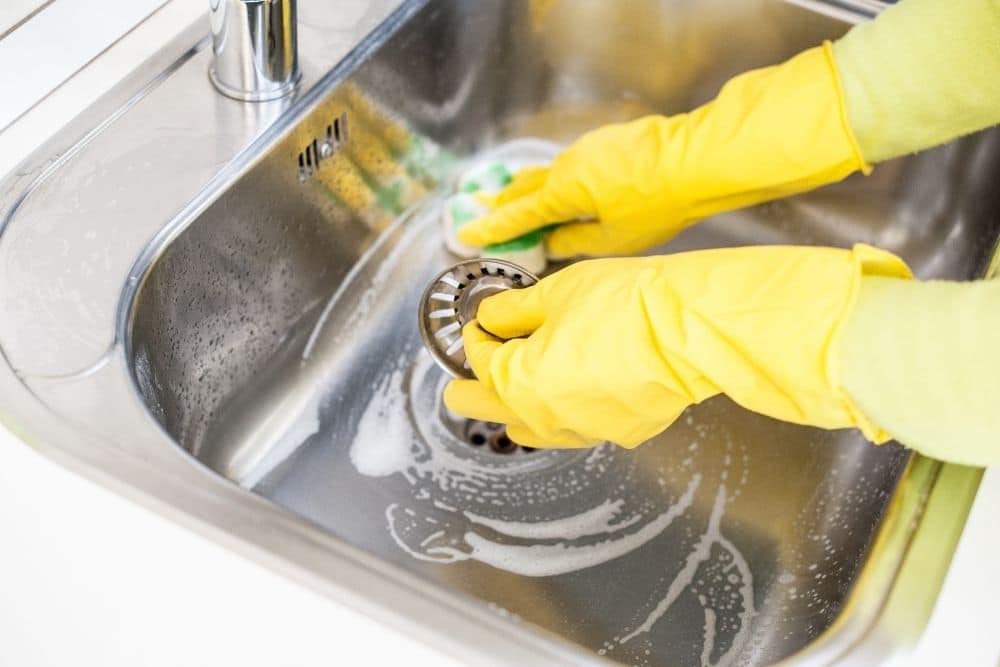

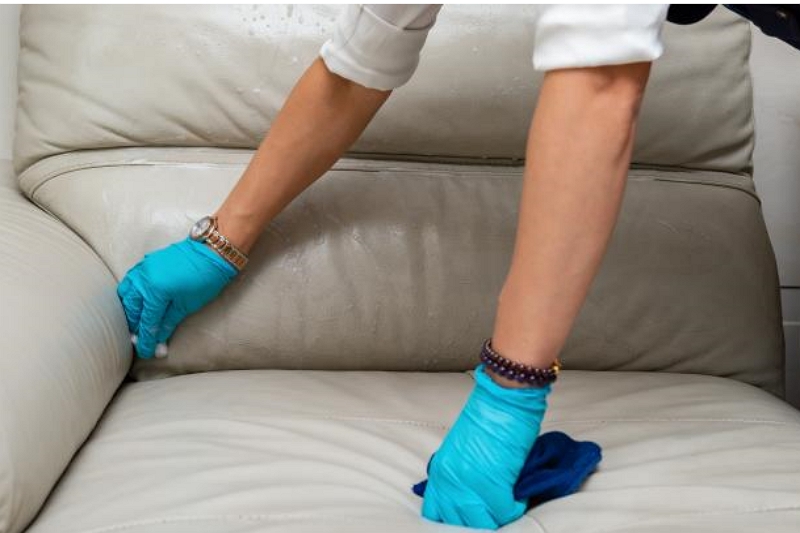











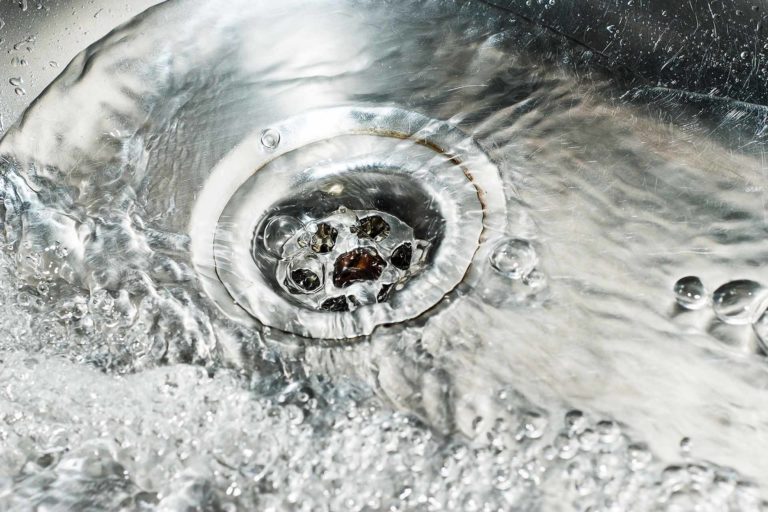

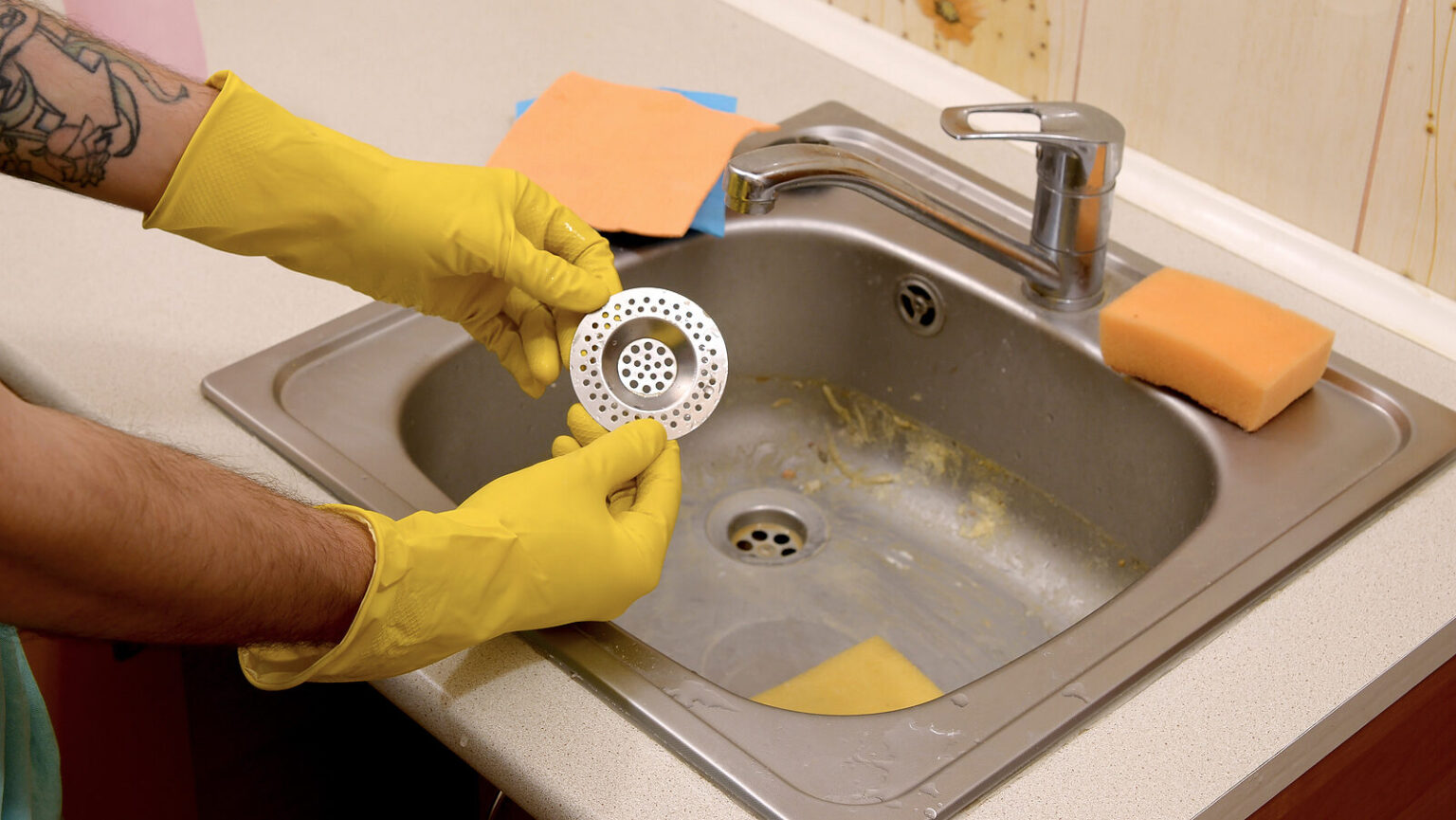







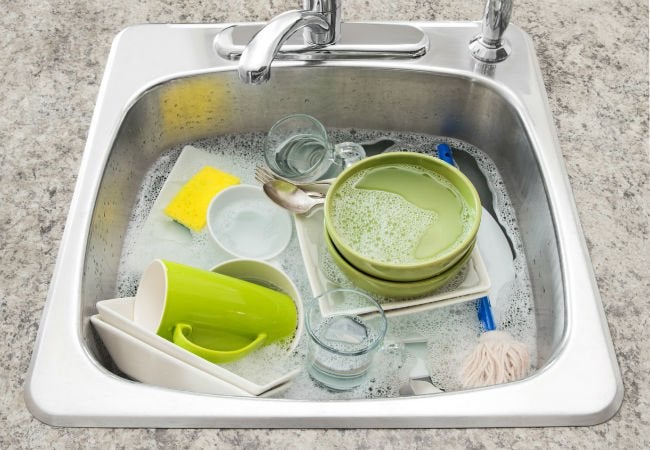
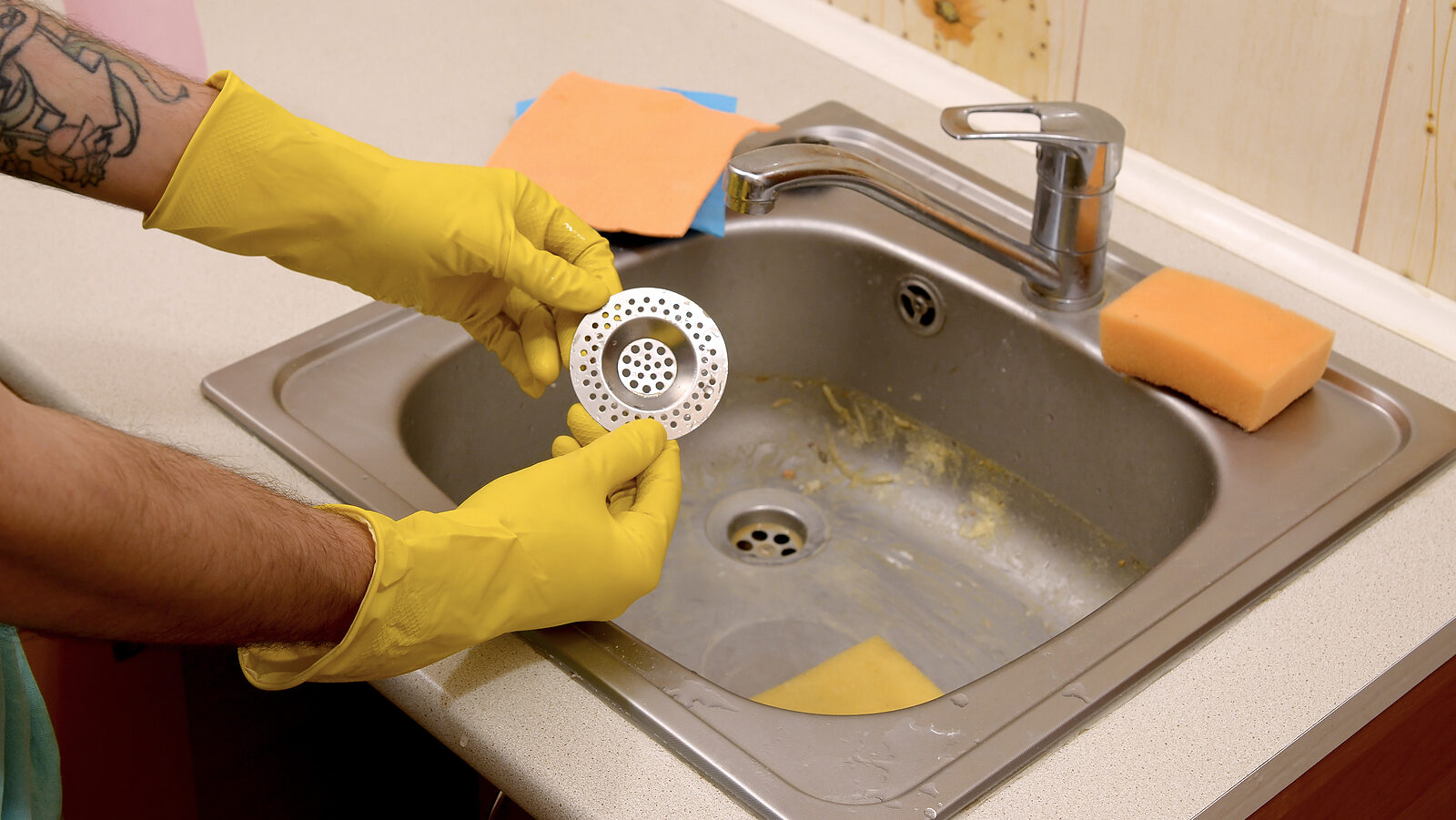




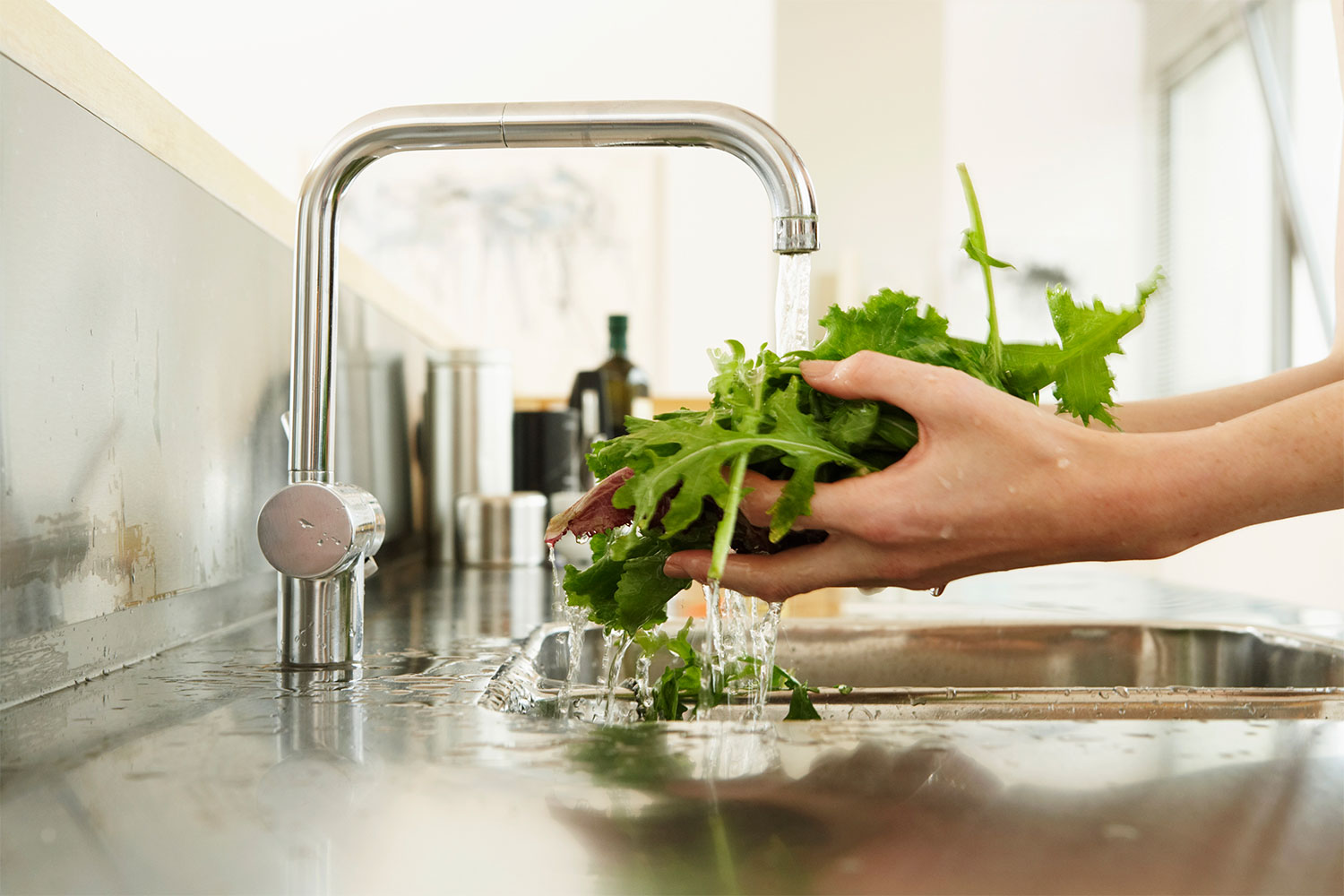




















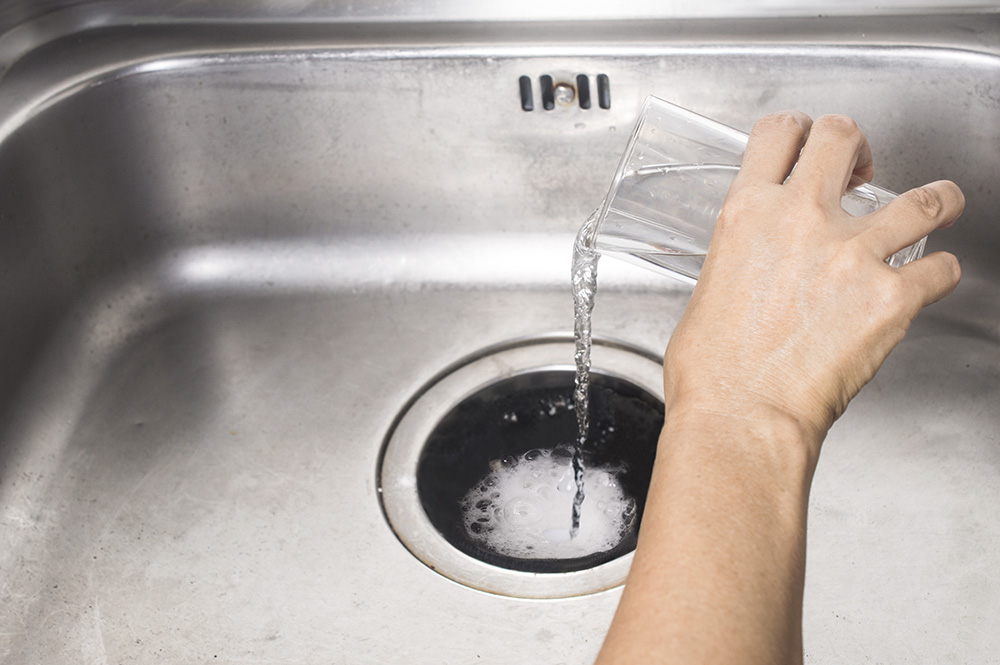





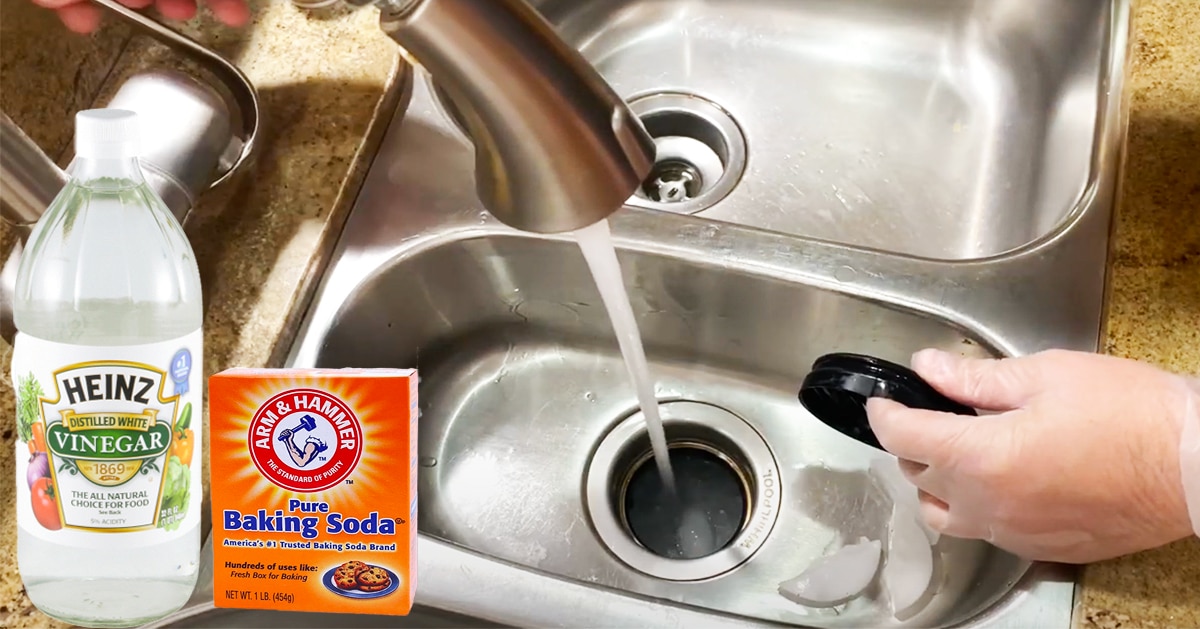
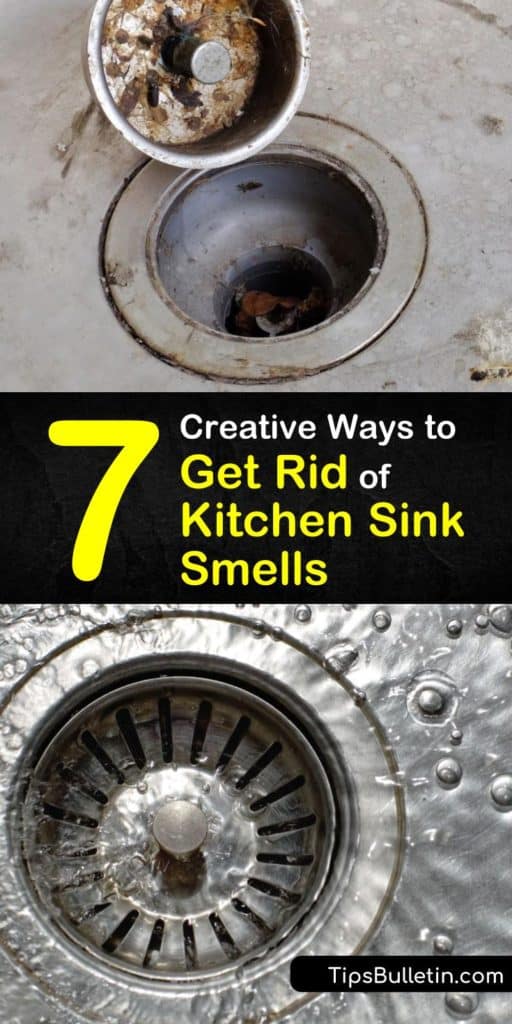




















/200453060-001-56a644683df78cf7728c2e01.jpg)
